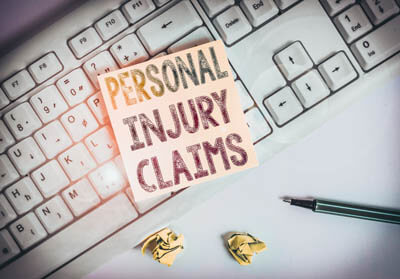
Is a Trucking Company Liable for Your Accident?

Many collisions between passenger sedans and large commercial trucks are caused by negligent truck drivers. Studies have shown that speeding, illegal maneuvers, and driver fatigue or drug use are major contributors to accidents.
But trucking companies also share liability in many cases. This is ideal, because truck companies have deeper pockets than individual drivers. Trucks that operate across state lines should have at least $750,000 in insurance, but many of our clients suffer catastrophic injuries that are worth quite a bit more.
Below, our Virginia Beach truck accident lawyer identifies 4 ways that the trucking company can be liable for your accident.
Negligent Hiring
Like other employers, trucking companies must use reasonable care when hiring people. Unfortunately, many employers hire drivers who are completely unqualified or who have a propensity to drive dangerously.
For example, a trucking company might have been negligent for the following:
- Failing to confirm a driver has the necessary license
- Hiring a driver who is too young to drive legally
- Hiring an elderly driver who is obviously infirm
- Failing to contact references or check driving history
- Overlooking a criminal history, including a history of unsafe driving
Federal laws lay out detailed requirements that trucking companies must follow. For example, they must perform a necessary medical exam to ensure the driver is fit to work. When companies refuse to follow the rules, they are liable for accidents.
Negligent Supervision
Once a company hires a driver, they need to properly supervise this person. For example, federal regulations require that they administer a chemical test to a driver involved in a collision. If the driver was impaired by drugs or alcohol, the company should relieve them of duty.
Unfortunately, many companies have a careless attitude when it comes to supervision. They might never perform a chemical test, or they might even let a driver who was drunk back out on the road immediately following the accident.
Incentivizing Illegal Conduct
Truck drivers must follow many laws, including regulations that limit their ability to drive too many hours each day/week. Some trucking companies require that their employees break the law, or they otherwise provide strong financial incentives for them to act illegally. A trucking company might be liable when it behaves in this manner.
Failing to Maintain a Safe Fleet
Trucking companies can also be liable when they put dangerous trucks out on the road. For example, a company might know that the brakes on a truck are starting to fail, or they know that a truck has a manufacturing defect. In these situations, a trucking company should pull the suspect vehicle from the fleet and have it repaired.
Once a company knows of a problem with a vehicle, it is foreseeable that the vehicle might end up causing a collision. This foreseeability makes the company liable. Companies often “push the limit” until a truck breaks down, but the results are tragic.
Vicarious Liability
Virginia has a concept called “vicarious liability,” which makes an employer automatically liable when their employee injures someone negligently while working. Unlike the examples above, this is an indirect version of liability. Still, it provides an easy way to hold a trucking company liable for an accident.
There are limitations to vicarious liability. As mentioned above, the driver must have been working at the time. The driver also must have been negligent, and his negligence must have harmed you. If you are hit by a trucker who is hauling goods for pay, then you probably can use vicarious liability to your advantage.
Speak with a Truck Accident Attorney in Virginia
Breit Law seeks to maximize our client’s financial recovery following an accident. Consequently, we identify all parties who are responsible. For help with your case, please contact us today to schedule a free consultation.




